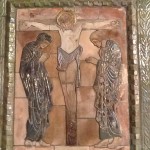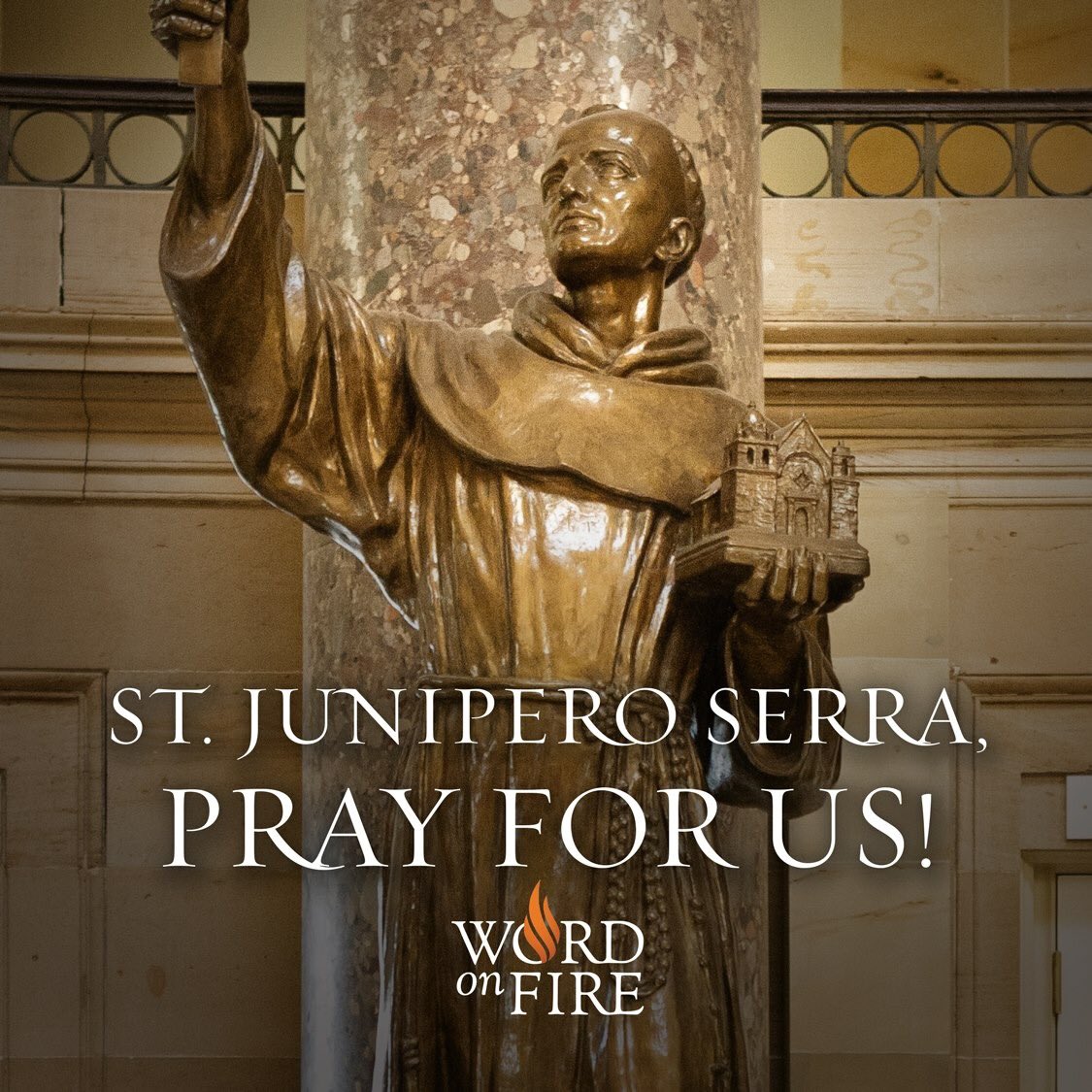1. St. Teresa of Avila is in Magnificat for this Sunday:
Lazarus did not ask you to raise him up. You did it for a woman sinner; behold one here, my God, and a much greater one; let your mercy shine. I, although, miserable, ask life for those who do not want to ask it of you.
2.
Like the prophet Jeremiah, may we recognize the Lord as the searcher of our minds and hearts and the one to whom we must entrust our lives.
— Bishop Burbidge (@BishopBurbidge) March 21, 2015
3. Fr. Steve Grunow:
The refusal of Christ is not just something that some people did long ago and in a far away place, but it exists in each and every one of us. We are not to look at the image of the Crucified Savior or listen to the accounts of his suffering and death and think that blame can be assigned for what he see and hear to anyone but ourselves. The revelation of the Cross anticipates all our refusals of Christ, our stubborn unwillingness to love what Christ loves and serve what Christ serves. The shadow of the Cross is cast over our pain-filled unwillingness to forgive.
4. I have a long interview on National Review with Paul Thigpen about his beautiful, powerful new handbook for spiritual warfare here.
5.
Meditations on the five Sorrowful Mysteries of the Rosary
http://t.co/CIb2CeKDJZ
— Fr Lawrence Lew OP (@LawrenceOP) March 20, 2015
6. In the Liturgy of the Hours today:
From the pastoral constitution on the Church in the modern world of the Second Vatican Council
(Gaudium et spes, nn. 37-38)Holy Scripture, with which the experience of the ages is in agreement, teaches the human family that human progress, though it is a great blessing for man, brings with it a great temptation. When the scale of values is disturbed and evil becomes mixed with good, individuals and groups consider only their own interests, not those of others.
The result is that the world is not yet a home of true brotherhood, while the increased power of mankind already threatens to destroy the human race itself.
If it is asked how this unhappy state of affairs can be set right, Christians state their belief that all human activity, in daily jeopardy through pride and inordinate self-love, is to find its purification and its perfection in the cross and resurrection of Christ.
Man, redeemed by Christ and made a new creation in the Holy Spirit, can and must love the very things created by God. For he receives them from God, and sees and reveres them as coming from the hand of God.
As he gives thanks for them to his Benefactor, and uses and enjoys them in a spirit of poverty and freedom, he enters into true possession of the world, as one having nothing and possessing all things. For all things are yours, and you are Christ’s, and Christ is God’s.
The Word of God, through whom all things were made, himself became man and lived in the world of men. As perfect man he has entered into the history of the world, taking it up into himself and bringing it into unity as its head. He reveals to us that God is love, and at the same time teaches us that the fundamental law of human perfection, and therefore of the transformation of the world, is the new commandment of love.
He assures those who have faith in God’s love that the way of love is open to all men, and that the effort to restore universal brotherhood is not in vain. At the same time he warns us that this love is not to be sought after only in great things but also, and above all, in the ordinary circumstances of life.
He suffered death for us all, sinners as we are, and by his example he teaches us that we also have to carry that cross which the flesh and the world lay on the shoulders of those who strive for peace and justice.
Constituted as the Lord by his resurrection, Christ, to whom all power in heaven and on earth has been given, is still at work in the hearts of men through the power of his Spirit. Not only does he awaken in them a longing for the world to come, but by that very fact he also inspires, purifies and strengthens those generous desires by which the human family seeks to make its own life more human and to achieve the same goal for the whole world.
The gifts of the Spirit are manifold. He calls some to bear open witness to the longing for a dwelling place in heaven, and to keep this fresh in the minds of all mankind; he calls others to dedicate themselves to the service of men here on earth, preparing by this ministry the material for the kingdom of heaven.
Yet he makes all free, so that, by denying their love of self and taking up all earth’s resources into the life of man, all may reach out to the future, when humanity itself will become an offering acceptable to God.
RESPONSORY
2 Corinthians 5:15; Romans 4:25Christ died for all,
– that those who live
should no longer live for themselves
but for him who died and rose again
for their sake.He was put to death for our sins,
and raised to life to restore us to God’s friendship.
– That those who live should no longer live for themselves
but for him who died and rose again
for their sake.
7.
No one is without a family in this world: the Church is a home and a family for everyone. @STJOHNPAULII
— Sister Andrew Marie (@SrAndrewFSP) March 21, 2015
9. Pope Francis in Naples today:
The Word of the Lord, yesterday like today, always causes a division — the word of God always divides — between those who welcome it and those who reject it. Sometimes, it sparks an interior conflict in our hearts; this happens when we perceive the attractiveness, beauty and truth of Jesus’ words, but at the same time we reject them because they are challenging, they put us in difficulty, and cost us too much to observe.
Today I came to Naples to proclaim together with you: Jesus is Lord! I do not want to say it alone. I want to hear you say it. (Jesus is Lord!) Once again. (Jesus is Lord!) Nobody speaks like him! He alone has the words of mercy that can heal the wounds of our heart. He alone has the words of eternal life (cf. Jn 6:68).
The Word of Christ is powerful: it does not have the power of the world, but that of God, which is strong in humility, even in weakness. Its power is that of love—that is the power of the Word of God—a love that knows no bounds, a love that makes us love others before ourselves. The Word of Jesus, the Holy Gospel, teaches that true blesseds are the poor in spirit, the non-violent, the meek, those who work for peace and justice. This is the force that changes the world! This is the Word that gives strength and that can change the world. There is no other way to change the world.
The Word of Christ wants to reach everyone, especially those who live in the peripheries of existence, that they may find in him the centre of their lives and the source of hope. And we, who have had the grace to receive this Word of Life—it is a grace to receive the Word of God—we are called to go, to step out of our fences and, with missionary zeal, to bring to everyone the mercy, tenderness and friendship of God. This work belongs to everyone but in a special way to you, priests: bring mercy, forgiveness, peace, joy, in the sacraments, in listening, so that the people of God can find in you merciful men, like Jesus.
At the same time, each parish and each ecclesial reality must become a sanctuary for those seeking God and a welcoming home for the poor, the elderly and those in need. To go and to welcome: this is how the heart of Mother Church, and the heart of all her children, beats. Go, welcome. Go, seek. Go, bring love, mercy and tenderness.
When hearts open to the Gospel, the world begins to change and humanity rises again! If we welcome, and live every day, the Word of Jesus, we rise with him.
10.
#Lent is an invitation from Christ to be in good company, His company #homilytweet #StationsoftheCross pic.twitter.com/AjZbEA7lzK
— Kathryn Jean Lopez (@kathrynlopez) March 20, 2015
PLUS: Will you #StationsoftheCross ?












